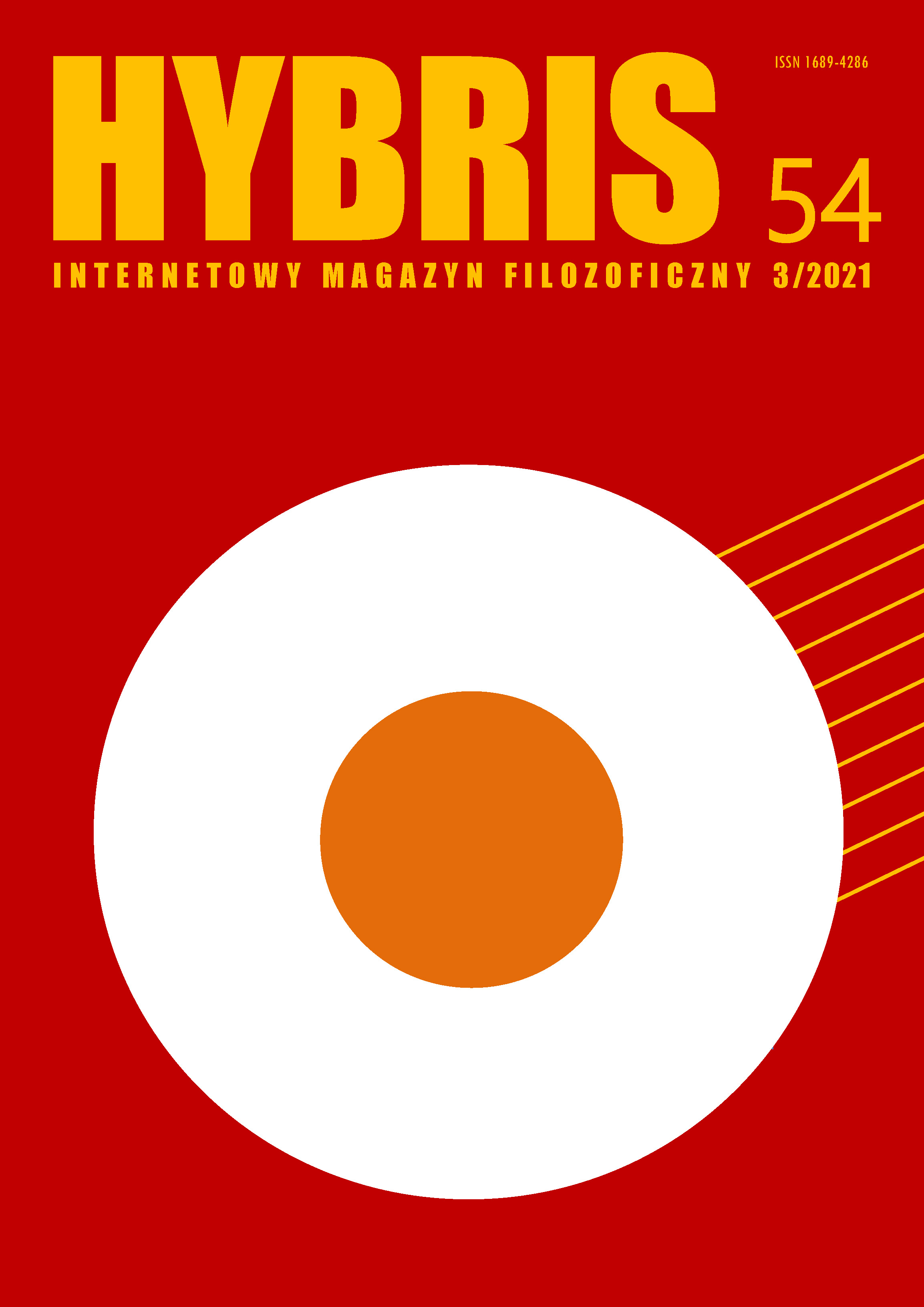Jean-Jacques Rousseau’s noble savage in contrast to the anarcho-primitivist return to nature
DOI:
https://doi.org/10.18778/1689-4286.54.01Keywords:
Jean-Jacques Rousseau, anarcho-primitivism, state of nature, noble savageAbstract
The idea of "noble savage" presented by Jean Jacques Rousseau was used in the deliberations of anarcho-primitivists. The purpose of this paper is to compare Rousseau's "noble savage" with the contemporary "noble savage" of anarcho-primitivists. Rousseau's man living in a state of nature is a rhetorical figure by which the French philosopher wanted to consider the opposition of life in nature and outside of nature. To bring out the difference between people functioning in civilized societies and wild individuals remaining in full symbiosis with nature.According to him, by abandoning nature in favor of life in society, the noble savage lost many primal and natural qualities, gaining instead the profits needed for collective existence. Anarcho-primitivist technophobia expresses itself in the belief that science and technology are incapable of giving man happiness and lead to the degradation of the environment, the alienation of man from nature, and the enslavement of people by the system. The return to nature that they advocate is aimed at rejecting technology, civilization, and social supremacy, and shifting from a sedentary to a hunter-gatherer lifestyle. It is supposed to "reawaken" in people the happy, noble savage. But is it possible? Is the man living in symbiosis with nature, postulated by anarcho-primitivists, only a rhetorical figure, like the noble savage present in Rousseau's philosophy? Is a true return to nature possible, or is it just ideological speculation?
References
Baranowska M. (2015), Jana Jakuba Rousseau refleksja o naturze człowieka. W: W: Fiktus P., Marszał M., Malewski H. (red.), Rodzinna Europa. Europejska myśl polityczno-prawna u progu XXI wieku, Wrocław: Prawnicza i Ekonomiczna Biblioteka Cyfrowa. Wydział Prawa, Administracji i Ekonomii Uniwersytetu Wrocławskiego.
View in Google Scholar
Beston H. (2003), The Outermost House, New York: St. Martin’s Griffin.
View in Google Scholar
Böhme G. (2014), Cywilizacja naukowo-techniczna, Filozofia i Nauka, tom 2, 403-419.
View in Google Scholar
Gordon U. (2011), Polityka zastosowania technologii, Przegląd anarchistyczny, 12, 10-30.
View in Google Scholar
Herodot (2011), Dzieje, księga 3, Warszawa: Czytelnik.
View in Google Scholar
Hobbes (1956), O obywatelu. W: Hobbes T., Elementy Filozofii, tom II, Warszawa: PWN.
View in Google Scholar
Homer, Iliada, online https://wolnelektury.pl/media/book/pdf/homer-iliada.pdf (dostęp: 12.05.2021).
View in Google Scholar
Kaczynski T. (2009), Industrial Society and its Future, Livermore, CA: WingSpan Press.
View in Google Scholar
Krawczyk J., Wasieczko A. (2007), John Zerzzan odpowiada, online https://pl.anarchistlibraries.net/library/john-zerzan-janusz-krawat-krawczyk-agnieszka-maria-wasieczko-john-zerzan-odpowiada par. 1-42 (dostęp: 12.05.2021).
View in Google Scholar
Moore, J. (2016), Elementarz Prymitywisty, przekł. ap.pl, online https://pl.anarchistlibraries.net/library/john-moore-elementarz-prymitywisty par. 1-18 (dostęp 12.05.2021).
View in Google Scholar
Onfray M. (2019), Dekadencja. Życie i śmierć judeochrześcijaństwa. Warszawa: Wydawnictwo Czarna Owca.
View in Google Scholar
Peretiatkowicz A. (1949), Jan Jakub Rousseau filozof demokracji społecznej, Poznań: Księgarnia Zdzisława Gustowskiego w Poznaniu.
View in Google Scholar
Perlman F. (1983), Against His-story, Against Leviathan, online: https://theanarchistlibrary.org/library/fredy-perlman-against-his-story-against-leviathan.lt.pdf ss. 1-196, (dostep 02.11.2021).
View in Google Scholar
Peterson del Mar D. (2010), Ekologia, Poznań: Zysk i S-ka.
View in Google Scholar
Rousseau J.J. (1955), Emil, czyli o wychowaniu, tom 2, Wrocław: Ossolineum.
View in Google Scholar
Rousseau J.J. (2002), O umowie społecznej, Warszawa: Altaya Polska & De Agostini Polska
View in Google Scholar
Rousseau J.J. (1956), Trzy rozprawy z filozofii społecznej, Warszawa: PWN.
View in Google Scholar
Sadowski R. (2016), The Concept of «Nobilis Barbarus» in the Light of Contemporary Ecological Challenges, Problems of Sustainable Development, 1 (11), 23-30.
View in Google Scholar
Starobiński J. (2000), Jean-Jacques Rousseau. Przejrzystość i przeszkoda oraz siedem esejów o Rousseau. Przekł. Janusz Wojcieszak, Warszawa: Wydawnictwo KR.
View in Google Scholar
Stępnik A. (2012), Wizja natury ludzkiej u Hobbesa i Rousseau w świetle współczesnych nauk, Przegląd Filozoficzny – Nowa Seria, 4 (84), 389-402.
View in Google Scholar
Veganarsy (2019), Mity Prymitywizmu. Wywiad z Tedem Kaczynskim, przekł. Stanisław Jan, online https://pl.anarchistlibraries.net/library/veganarsy-mity-prymitywizmu-wywiad-z-tedem-kaczynskim par. 1-23 (dostęp 12.05.2021).
View in Google Scholar
Wulf A. (2017), Człowiek, który zrozumiał naturę. Nowy świat Alexandra von Humboldta, Poznań: Wydawnictwo Poznańskie.
View in Google Scholar
Zerzan J. (2014), Animal Dreams, online https://theanarchistlibrary.org/library/john-zerzan-animal-dreams-black-seed-issue-one par. 1-42 (dostęp: 12.05.2021).
View in Google Scholar
Zerzan J. (1997), Przeciwko Technologii, online https://pl.anarchistlibraries.net/library/john-zerzan-przeciwko-technologii par. 1-26 (dostęp: 12.05.2021).
View in Google Scholar
Zerzan J. (2008), Twilight of the machines, Port Townsend, WA: Feral House
View in Google Scholar
Zerzan J. (2015), Why hope? The stand against civilization. Port Townsend, WA: Feral House.
View in Google Scholar
Zielka S. (2015), Rousseau i nowożytne spotkanie z Innym, Problemy Wczesnej Edukacji, 11/3(30), 104-112.
View in Google Scholar
DOI: https://doi.org/10.5604/01.3001.0008.9219
Downloads
Published
How to Cite
Issue
Section
License

This work is licensed under a Creative Commons Attribution-NonCommercial-NoDerivatives 4.0 International License.






